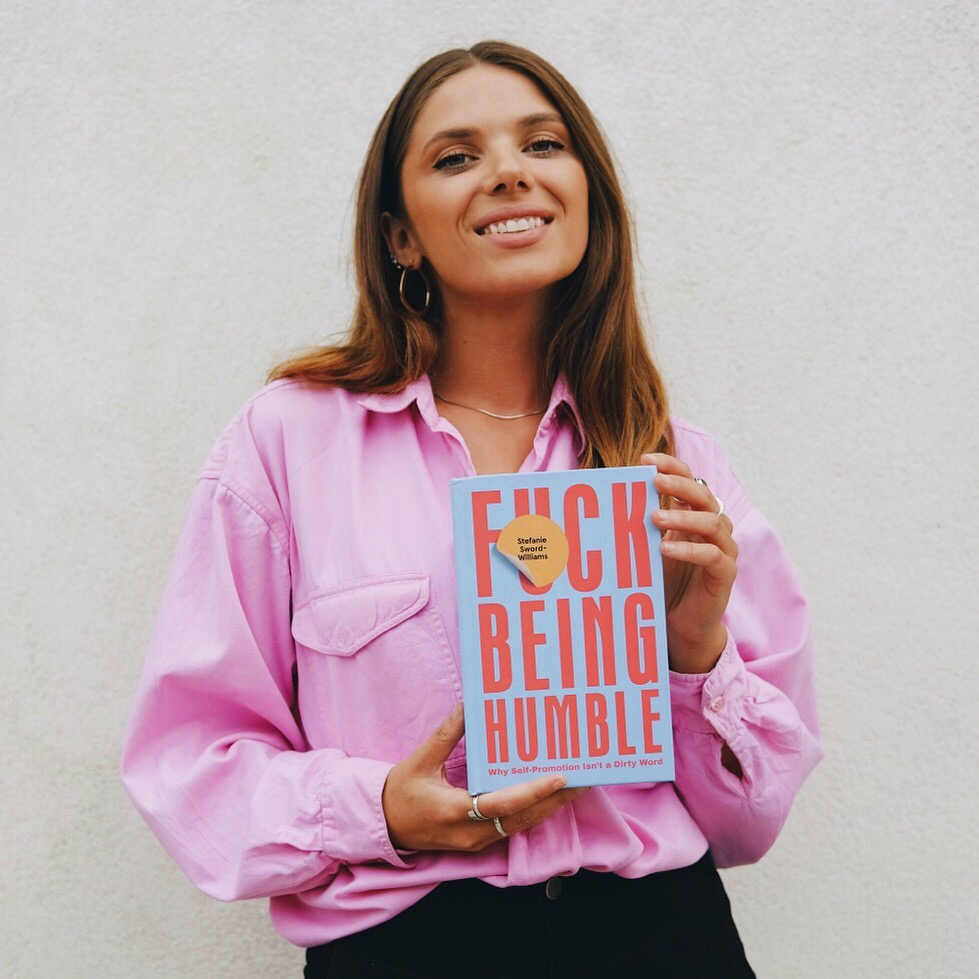P H E N O M E N A L W O M E N
Interview Series
S T E F A N I E S W O R D - W I L L I A M S
Entrepreneur, Author & Founder of Platform and event series F*ck Being Humble, a public speaker, host, presenter, community builder and storyteller
We interviewed Stefanie on the Florian London IGTV.
Read the extracts from the interview below.
Florian London : Hi Stephanie, thank you for joining us this evening. Your Book F*uck being Humble, is a massive statement, especially in England where "Being humble" is the culture and very much promoted. Tell us more about that.
Stephanie Williams : Yeah, absolutely. So yeah it's quite a controversial statement and I know. A lot of people love it but some people have to get their head around it. But I basically set up F Being Humble as a side hustle two years ago. And I basically wanted to just help people with self-promotion because I noticed, very quickly, that nobody's ever been taught how to self-promote. I don't know about you but have you ever been taught how to get a pay rise by your bosses? Or how to write a good bio about you, or any of those things that, actually as we grow in our careers we really need to know about. And I also just noticed that there's a real lack of representation across panels and I felt like more needed to be done to try and change that. And actually always going to industry events where you just listen to someone else talk about their career isn't enough to change your own. And a bio will take me like an hour and then you go home and watch a violent, or whatever is on TV. Yeah, you know, you don't get the chance to implement that. So when I started F Being Humble all my intention was to create really useful content that could basically transform people's careers and give them the education and inspiration. And almost like the permission to go self-promote because I think for so long we've been told we shouldn't do that and we should be modest and we should be humble that actually as soon as somebody says to you, "Well, maybe that's not the only way succeed or achieve," then we can start to break away from that.
Florian London : For us self-promotion is all about attempts and to present yourself and to others, as accomplished, I'm capable and smart. How do you self-promote without coming across as narcissistic and self-centered? How would you say, you can?
Stephanie Williams : Honestly, this is the question I get asked the most, How do you self-promote without sounding arrogant? How do you do it, where it doesn't feel too intrusive or too loud? And for me, the start of any form of self-promotion, you've just got to ask yourself, "Why are you doing it? What is your intention, what you're hoping to achieve? " When you're thinking about self-promotion, all those preconceptions you have of, "I'm going to look arrogant, I'm going to look self-indulgent, you've got to let them go before you even start self-promoting because you'll never do it effectively otherwise because you'll constantly be like, "Oh should I do it? Should I not? "It's a mindset change to start with I'd say it's really important. And then, I write blogs and I have done workshops on this.
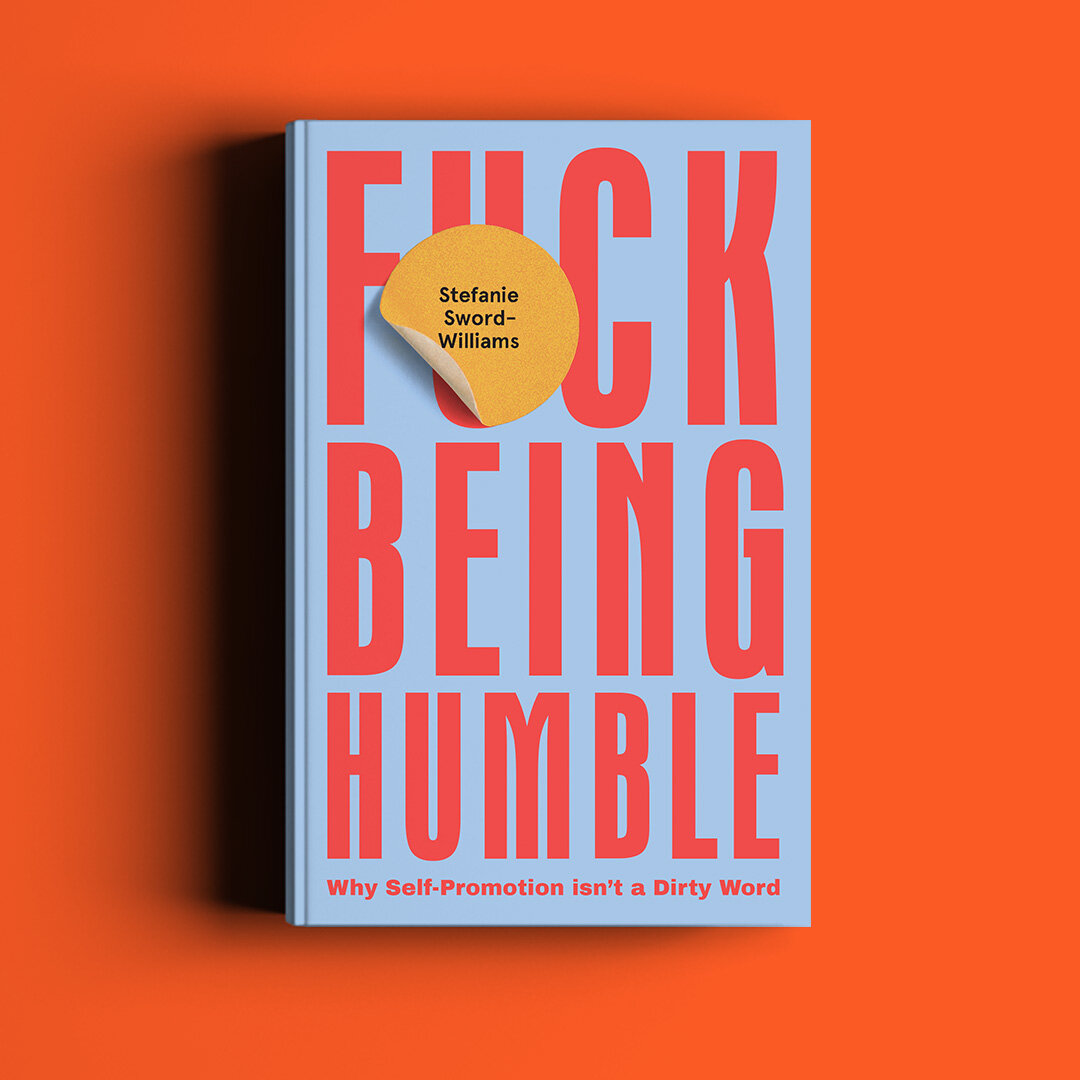
But it's very much about asking yourself, "What tone do you want to have with self-promotion? Do you want to be vulnerable? Do you want to be funny? Do you want to educate people? "So one of the quickest ways to self-promote and not look arrogant is to share learning as you're self-promoting. I just did a post about delivering a TEDx talk in September and the fact that I wasn't that proud of it, I didn't think it was my best piece of content but the reason I wanted to share it was because I wanted to show people that you don't have to have loads of connections in order to achieve anything like that. Not everything you do has to be perfect. And out of the article, I wanted to talk more about my experiences like an underdog and the fact that I didn't really expect that I'd ever get to do this, or the learning I've gained from doing the achievement. So you know, if you've just generated £100,000 for your business, if you can teach people 2 or 3 points on what you've learned and how they could do it, then they wouldn't have to turn their noses up at you.
It would always be, "Oh, well this is value, they're sharing value." So I think, there is that sort of way. I always say to a lot of people, "Think about how you could cheerlead people who were involved and their achievements." So if you're on a team of 10 people and you couldn't have done it without the nine other people, then, promote them and say how amazing they were. You're still promoting yourself and your achievements but you're showing yourself as someone who cares about being a team player. So there are lots of tactical things you can do, but ultimately, it's down to your tone of voice and what you want to be known for and I think when you look at F Being Humble as a brand, I'm very straight-talking, no BS, I'll give it to you how it is, I'm not here to hold your hand, and I'm not going to tell you to reach for the stars, that's not my tone. But I will be very direct in giving you practical advice to go away and do. It's just about figuring out what feels most genuine to you if you just go out and self-promote confidently.
Florian London: When was the first time you ever self-promoted? Can you remember?
Stephanie Williams : I asked my dad this recently and he laughed he was like, “I think you’ve self-promote your entire life.” And I’d do things like flirting with waiters when I was like six. So I feel like I’ve always been … When I think about self-promotion, and I call it storytelling and I've always been storytelling since I was young. I've always loved speaking to people and I think when I was at university my degree was quite competitive it was a bit like The Apprentice.
Florian London : What degree was it?
Stephanie Williams : It was fashion, communication, and promotion but it was like The Apprentice, the TV show. So you'd get a live brief and then you'd have three days to come up with ideas and pitch it back to other people. So it was intense but it was really good practice and it was definitely on that course I recognize there was a lot of competition, A lot of very similar people wanting to do similar things, you had to figure out how you're going to cut through. We did things like designing business cards and CV's and we spent a lot of time figuring out how to self-promote effectively and I think that was definitely the first start. And then throughout my career, I moved jobs six times in seven years. But that was not because I was fired or anything like that but because I always looked for a challenge and whenever I feel like I'm not being challenged, I want to grow somewhere else and do something new. So I think that inherently meant I had to self-promote more. I was going to interviews more, I was writing my CV, I was speaking to recruiters and then also my job was that I worked in advertising for seven years so I was always pitching, and I was always suggesting new ideas, and looking for ways for us to grow campaigns for our clients but also grow the awareness of our business and who we were. So it's always been something I've done my entire life.
Florian London : Well, because there's a lot of people probably listening in so they're feeling like, "I want to self-promote" but they suffer from something called imposter syndrome, where you just don't feel like you belong or you're not good enough? So how do you self-promote if you're dealing with the imposter syndrome?
Stephanie Williams : So the first advice I can give is not focusing on you trying to achieve the thing that you need to do. Say it's, A, you want to give a public talk but you're petrified of public speaking. You're petrified about what people might think of you, what they might do. One of the things I say to a lot of people is, actually just focus on the people you could help if you did that. So when you take the focus away from you in the moment having to achieve or do something. When you take that pressure away and you think, if I just deliver this talk and one person's life changes, or if somebody quits their job and starts their own business because of something I've said, that's enough to, kind of, get me into that mindset. And I interviewed eight different women in my book, and I asked them all about different tips around imposter syndrome. And Nathesa McCarr, who runs Amalia.com, she gave really great feedback. She said that when she's struggling, she creates visual mood boards of what it is like, of that achievement. What would it look like or if she wants to get featured in the press, she'd mockup an article of what that might look like, or she would have a really nice example of the fact that she would write an acceptance speech for an award of expecting something because of the achievement that she did.
So it's, I think, the best advice that I can give and I have heard, generally, when I've spoken on panels and have spoken to different people is, this idea of focusing more on the future and not back at the present, focusing on all the amazing things that could happen as a result of you doing that work as opposed to what will happen if something goes wrong right now. And I think it's been really useful for myself, it's been really useful for the people that I've spoken to but ultimately imposter syndrome is driven by two things: it's either the voice in your head or it's the feedback that you've received over the years. And I think, we've all experienced it in different ways. And I felt when I was younger, I was always labeled as the creative one and throughout my career, I feel like in some cases, I've always had something that I wanted to prove, that I was more than just the creative one, I've written a book. How can I be not just that label? And sadly we get given labels at different times in our lives at different ages that we feel constrained by for the rest of our lives. So I think, one piece of advice I'd give is that those labels that somebody might have given you in passing or you might have done yourself, is like that, they were just said once or twice and it doesn't have to be the thing that defines you and who you are.
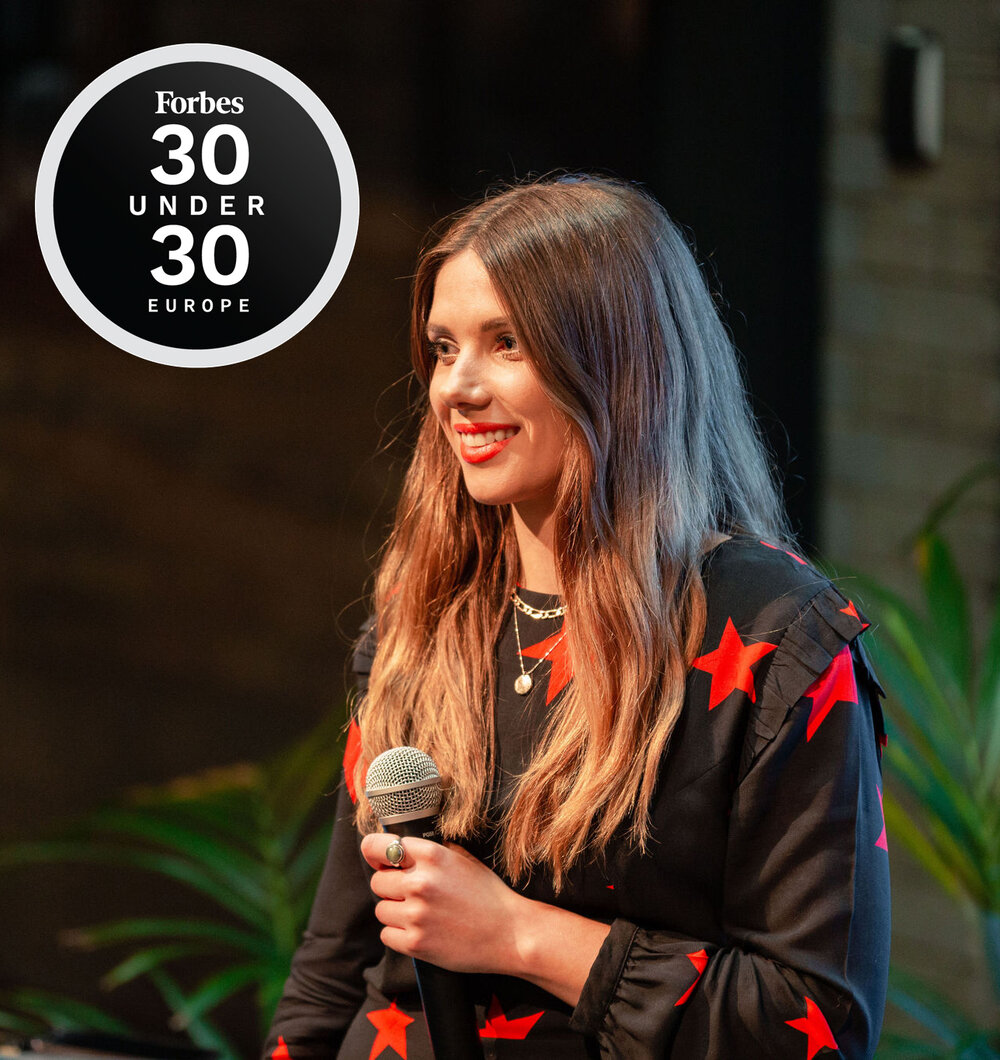
And actually, if you want to change directions or if you want to be a thought leader tomorrow, it's just about the content that you put out about yourself but it's up to you to change that narrative. I do think it's either you beating yourself up based on an insecurity or it's something that was said to you at some point in your career and you've basically just got to assess what evidence is there to back up any of those feelings because ultimately, the evidence is... On the flip side, it's about thinking about what evidence do I have to remind me that I'm not that? What were the achievements? Yeah, and that's why it's so important to regularly document your successes and get used to talking about your achievements so that when you are in that working situations when you are in an interview when you are pitching yourself, you've already got the evidence to back it up, you've already processed yourself, what it is that you need to do and the fact that you are very capable of doing something. The issue we see very often is that people don't do that preparation, they don't do that self-reflection, so when someone says, "Well, why are you qualified?” or, "What have you got to demonstrate that you're qualified for this?” we freeze. Even when we know deep down we can do it. We freeze because we've not prepared. And I think, in my book and in all of my talks I say to people all the time is, "The more preparation you do, the better results you'll see." And it sounds so obvious, but I think sometimes we forget that actually, nobody is going to believe you saying you're really good if you don't believe it yourself. 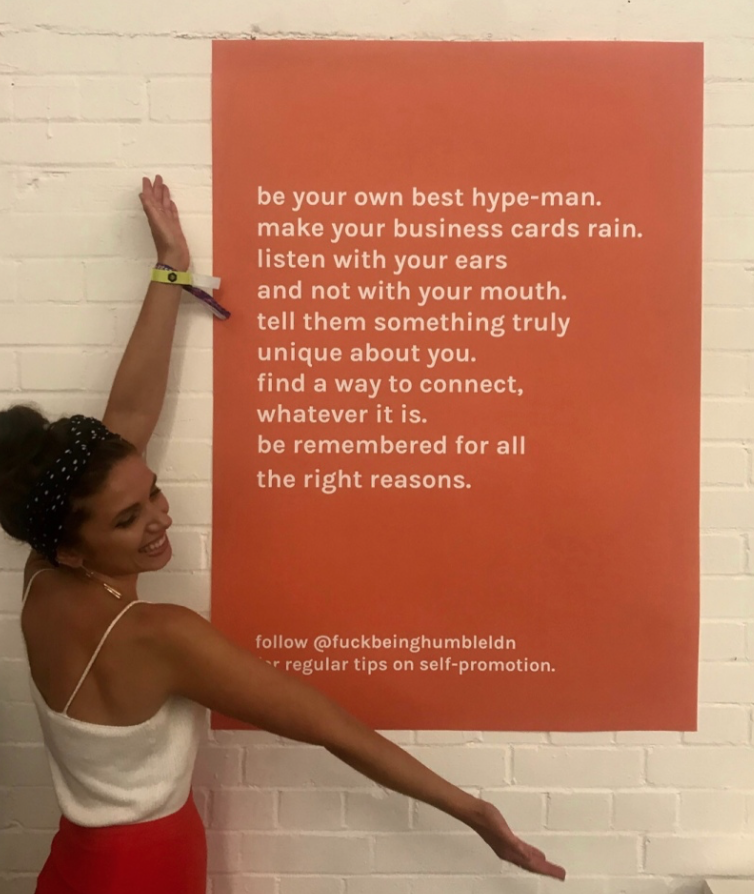
When you look at the Kardashians, Kris Jenner is the one that rides that family and gets them all booked. You have to have a realistic approach to this. I think it's the people that just assume that I will put something out there and everybody will come running to me, it's just not realistic. And I always make a joke that, I don't think there are people who just sitting around and typing in stephaniewilliams.com. They're just not. So I'll have to think about, how will I drive people to my website? What is my distribution strategy? In fact, for everything you work on, you'll need a marketing plan, you'll need a marketing strategy. When Nike releases a pair of trainers, back in the day before they were as big as they are now, people didn't just go buy them, it was all the advertising, the communication that was done around it about selling the dream, and all the things you will achieve if you have that product. I think the same goes for individuals too you have to story tell, you have to let people into your world, otherwise, how will anyone know what you're actually capable of? It's like you expect the world without putting in the effort. Yeah, that's where, I'm sorry if I sound blunt and tough love on it but I think that there's just too much talk, "If you work hard things will just pan out," and so many people can vouch for the fact that isn't always the way.
Stephanie Williams : Just to add to the imposter syndrome chat. So we've talked about the fact that when you focus more on the future and the end goals and the results, that the benefits that come as a result of you putting yourself out there, that's massively helpful. But then I also think, having mentors around you is so, so important. And having lots of different mentors as well can be really important because what a 50-year-old male might tell you versus a 30-year-old millennial versus a 21-year-old Gen Z could be completely different. And I think what's been really nice in my career is when people said, "Have you got like mentors?” I don't think I got official mentors but I got like, peers who I really respect and really rate who I'd go to regularly, to ask for support and advice, and actually, that's where I got a lot of support and guidance and reassurance that, am I even doing the right thing? Or I'm getting different perspectives. So a very, very easy way to approach it is just, literally, by looking at identifying people that you admire, and you want to learn from and you want to gain insights from because everyone's been through something. And I think that's really important. Everyone's had to ask for a pay rise at some point. Everyone's had to promote themselves. Everyone's had some sort of rejection, or something gone wrong and we can all resonate with that. And actually, somebody's going to give you a different piece of advice on everything, of a career moment. It's important that you go out and seek that advice and not just wait for this information to be put on your desk or to land in your inbox. If you want to make changes and see results, then it's up to you to take the control of that.
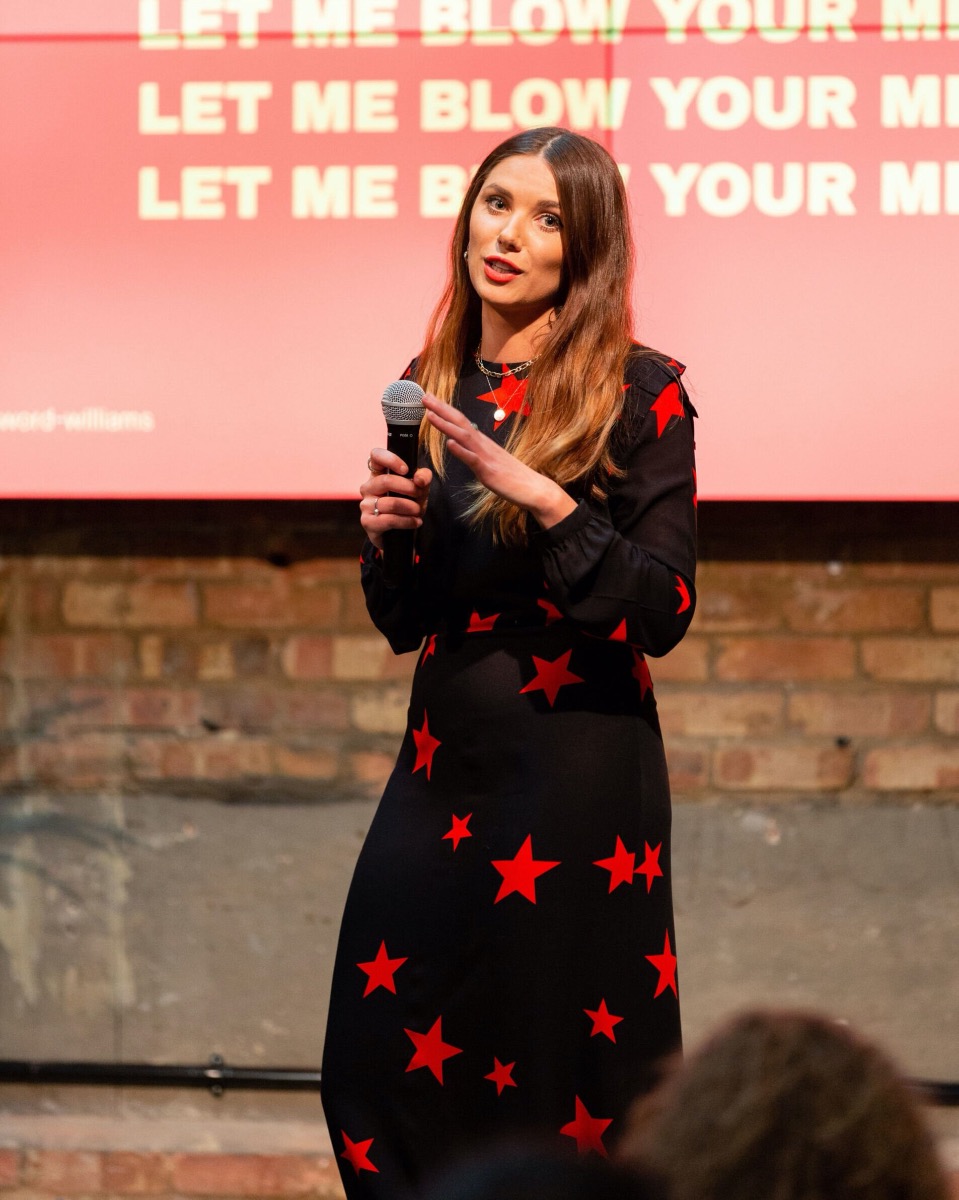
Florian London: Okay, so I know you've written the book F Being Humble can you tell them where to buy it? Is it on Amazon?
Stephanie Williams : Yeah. I'll give you a bit of an overview on the book as well. The book is basically, it's kind of like my entire career but it's also split out into all of the key things we've not been told appropriately. So it's how to apply yourself, how to network, how to recognize your self-worth, how to ask for more money, how to use emotional intelligence in the workplace, how to laugh at your failures, and how to not let labels limit you. And I always joke that it's very much written in the way I speak and it's very conversational, very easy to read, and as I mentioned I interviewed eight different women who are freelancers, self-employed, running three side hustles, all these different things. I'm asking people just to implore on their experiences. Because I didn't want it to be just purely my voice and just me, essentially. But you can buy the book on Amazon, and independent retailers. It's a really lovely coffee table book, if nothing else, and a lot of people are gifting it this year for Christmas because, given the year that we've had, it's actually, a really useful tool for anyone at any point in their career essentially.
Florian London : What about if people want to follow you on Instagram?
Stephanie Williams : They can follow me @FBeingHumbleldn and you can follow me @stephaniesw. Instagram is definitely where I promote a lot of the stuff that I'm doing. My next cause that I've got coming up is Big Up Yourself and it's a 2-week course which includes 4 workshops from me and activities to do by yourself not just basically how to raise your profile and build your reputation as an expert or thought leader, or if you're changing career directions and you want to show people you get the world you're going into. That's in January the last two weeks so if anybody is watching definitely check it out.
Thank you Stephanie. All the best.
From all of us at Florian London
